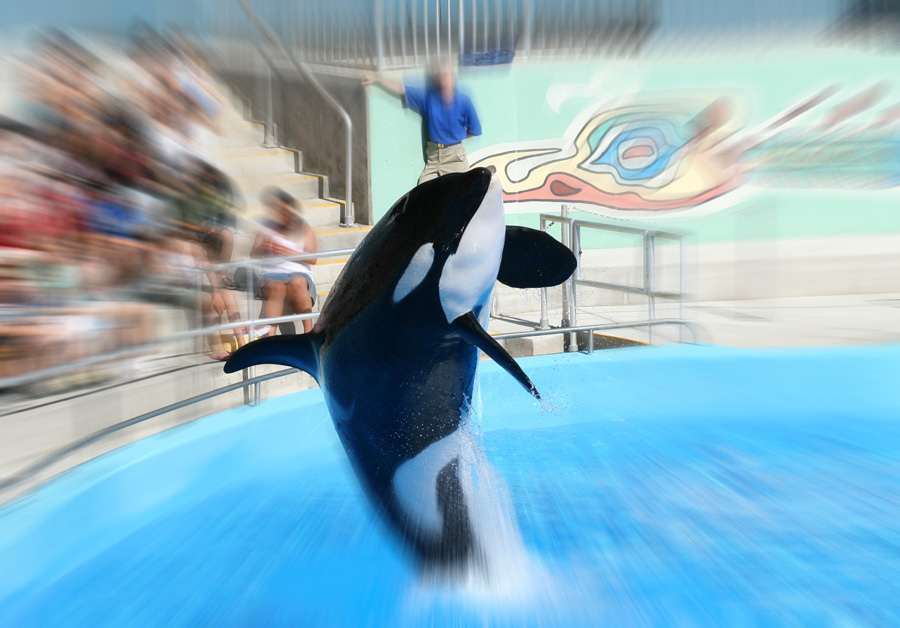This morning, SeaWorld announced that it will stop breeding killer whales and making them perform tricks at their theme parks. The whales currently in captivity will continue to be on display, but they will be presented as “new, inspiring natural orca encounters,” rather than performances where they perform tricks for audiences, Seaworld said.
A statement from Seaworld states, “The orcas will continue to live at SeaWorld for many years to come, inspiring guests in new and natural ways. They will continue to receive the highest-quality care based on the latest advances in marine veterinary medicine, science and zoological best practices.”
The shows featuring Orcas have been a major attraction of the SeaWorld parks since the 1970s, including shows at the Shamu stadium in San Diego. When asked if they will end their shows involving dolphins and other marine mammals, they said “Stay tuned on that.”
“Society’s attitudes have shifted,” said Joel Manby, president and chief executive officer of SeaWorld Entertainment, Inc. during a telephone news conference. “It wasn’t worth fighting that.” It’s also worth noting that Seaworld faced an 84% drop in net second-quarter income, from $37.4 million in 2014 to $5.8 million in 2015. Revenue fell from $405.1 million to $391.6 million, a drop of 3%, in the second quarter of 2015 when compared to 2014.
The park saw 100,000 fewer visitors than it did at the same time in 2014, a decrease of 2%.
“We needed to move to where society was moving. That’s why it’s now and not two years in the future,” Manby said.
No doubt, the movie Blackfish also had a big part in changing those attitudes as well. The 2013 movie focused on Tilikum, an orca held by SeaWorld, and brought a widespread awareness to the issues and controversy over keeping killer whales in captivity. Work on the film began after the February 2010 death of Tilikum’s trainer Dawn Brancheau who was attacked while working with Tilikum. Tilikum was also involved in the deaths of two other people in the 1990s and is now very sick. He has been held in captivity at SeaWorld Orlando for 23 years.
The whales currently in captivity will not be released into the wild. According to Seaworld, “These majestic orcas will not be released into the ocean, nor confined to sea cages. They could not survive in oceans to compete for food, be exposed to unfamiliar diseases or to have to deal with environmental concerns – including pollution and other man-made threats. Instead, they will live long and healthy lives under love and care of our dedicated veterinary and other trained specialists where they can inspire this and future generations to be conservationists around the world through natural presentations that are fun, exiting and will educate guests about the plight of orcas in the wild.”
SeaWorld now hopes to form a partnership with the Humane Society to help educate guests about animal welfare and conservation through interpretive programs and expanded advocacy for wild whales, seals and other marine creatures.
.

